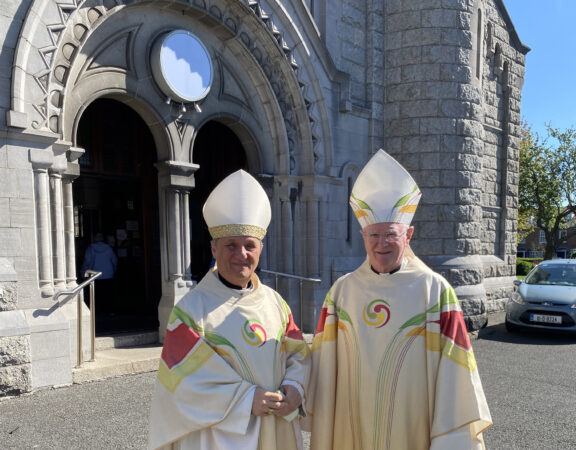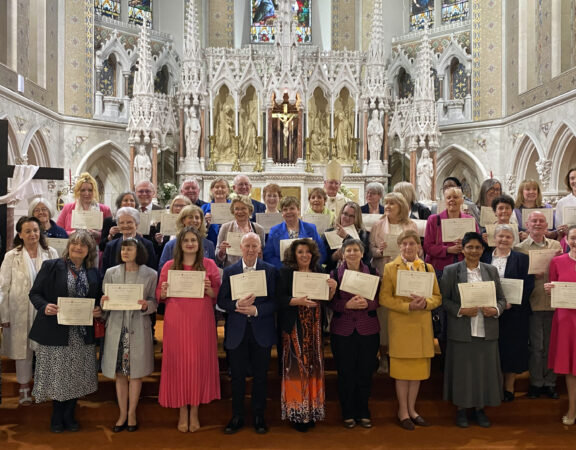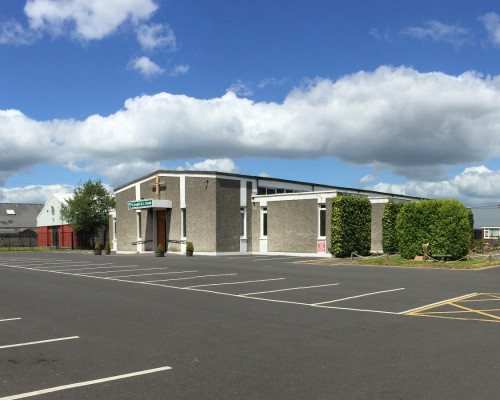Homily Notes of
Most Rev. Diarmuid Martin
Archbishop of Dublin and Primate of Ireland
———–
Pro Cathedral, Dublin, 18th April 2005
We pray here this evening for the Cardinals. We pray in a special way for the one who will in these days realise that the Holy Spirit is reaching out in his direction, asking that he assume the grave responsibilities of the office of successor of Peter. May the Lord let him know that he can count on the support of our prayers, as, day after day, until the last day of his life, we will remember him by name in the great Eucharistic Prayer of the Church.
Peter was called to “strengthen his brethren” (Lk. 2:32). The task of a new Pope in our day will be to be the centre of unity within the family of the Church, spread out as it is in different nations and different cultures, in different theological and liturgical traditions. The new Pope will be called to strengthen his brethren, the bishops and successors of the apostles, in their mission to preach the word and to make the love of Jesus present in this complex and many-sided world in which we live.
In order to be able to strengthen his brothers in the faith, the new Pope must first of all be himself a rock, a man of deep faith who can draw out of his own faith – and out of the lived faith of the Church – the strength to safeguard the deposit of faith and to make that faith something which is willingly embraced by the men and women of our time, especially young people. Despite all his human limitations, the new Pope will also enjoy that special protection that the Lord promised to Peter, that his “faith may not fail” (cf. LK 21:32).
The Jesus who is the revelation of the God of Power and Might was born in the humblest of conditions. The Jesus who revealed the God of Life died the death of a criminal. Jesus reveals a God who turns worldly values head over heels. Faith requires that a generation which prizes human self-sufficiency becomes capable of experiencing God as saving power. We can only lead a generation who feels no need to be saved to turn to a God who saves, if we can show that God’s redeeming power does not dispossess us of our humanity but enables us to see where true values lie, to understand the mystery of our human identity.
When we pray for the new Pope, we must also pray for renewal in the Church. We pray for renewal in our own Christian lives, we pray for renewal in the life of faith and in our desire to share that faith with others. We pray that the new Pope will be sustained by communities with a strong belief in Jesus Christ.
We pray in particular that the new Pope will have that special love of Jesus which was required of Peter (Jn, 21: 15-19) before he received his mandate to nourish the flock of Jesus. May the Lord give the new Pope the strength to witness to that love in the face of all hostility and indifference. May the Lord give him the strength to preach the faith, in season and out, until that death with which he will be called to glorify God. May the new Pope be a rock of strength for all of us in our faith. May he strengthen us in our desire to live the message of Jesus to the full, as we seek to love God and our neighbour after the example of Jesus Christ.









